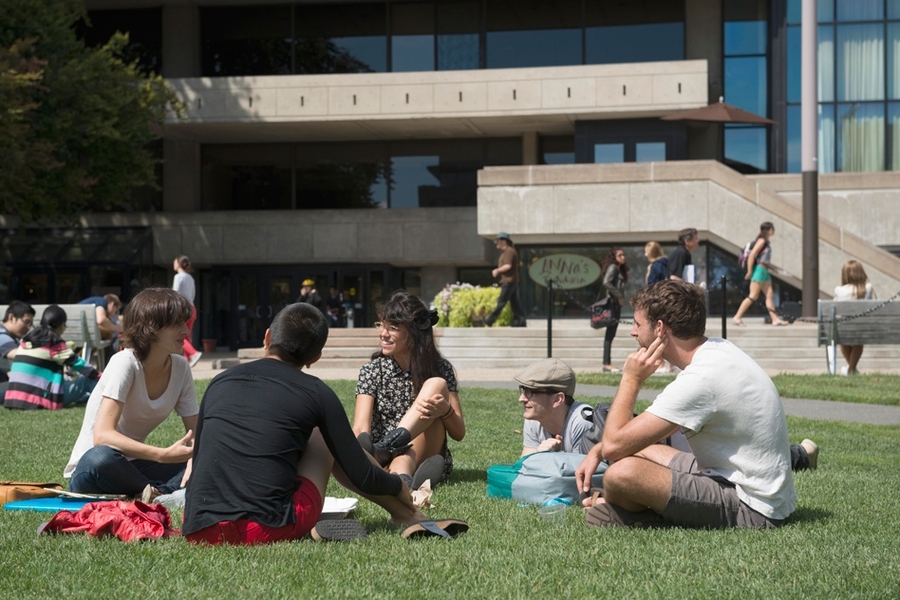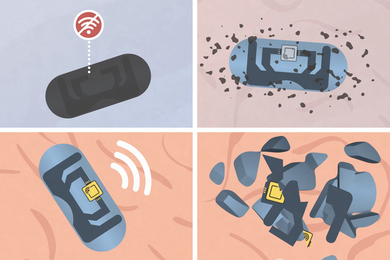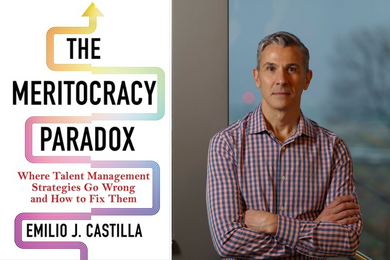Chancellor Cynthia Barnhart and MIT Medical Director William Kettyle announced today, in a letter to the MIT community, a series of immediate and long-term steps to strengthen the Institute’s mental health and well-being programs.
Among other changes to enhance student wellness, the Institute will increase staffing in MIT Medical’s Mental Health and Counseling Service and in Student Support Services, and will create a centrally located drop-in center to expand access to critical mental health services — complementing the weekly walk-in hours available to students for mental health and counseling at MIT Medical.
MIT Medical will also make it easier for students to seek professional services off-campus; add an online request form for appointments with its own mental health professionals; and train 32 additional students as peer advisors.
“At MIT, we excel at collaborating on hard problems,” Barnhart and Kettyle wrote. “By continuing to tap our passionate community spirit and innovative problem-solving skills, we are confident we can make progress and enhance mental health and well-being at MIT.”
Barnhart and Kettyle also unveiled a campus-wide initiative — dubbed the MindHandHeart Initiative — that will improve the coordination of MIT’s existing mental health and counseling offerings. The goal, they wrote: “Over time, we want members of our community to feel more comfortable asking for help when they need it, and we want to build a healthier, stronger community.”
With today’s announcement, Barnhart and Kettyle also released results from the Healthy Minds Study, conducted at MIT in April and May. This survey, of undergraduate and graduate students at 18 colleges and universities nationwide, found that relative to their peers, fewer MIT students report major mental health issues, and more MIT students know where to go to get professional help for a mental health issue. But the MIT respondents also called for more staffing and additional walk-in hours to better meet students’ needs.
“I am deeply grateful to Chancellor Barnhart and Dr. Kettyle for the rigor, responsiveness, and creativity they bring to the important questions of student mental health and well-being,” MIT President L. Rafael Reif says. “By bringing these issues out in the open, and by embracing this as a challenge for the whole community, they have set us on an important path to progress.”
Survey findings on mental health and wellness
Administered to all 10,831 MIT undergraduate and graduate students in April and May, the multi-campus Healthy Minds Study generated responses from around 3,000 of the Institute’s students, or 28 percent of those queried. Seventeen other campuses, including some peer institutions, also participated in the national survey, eliciting responses from a total of 16,074 students nationwide.
Specific findings from the Healthy Minds Study include:
- Fewer MIT respondents reported being diagnosed with major mental health issues than in the national sample. Among those at MIT who reported a mental health issue, 50 percent of undergraduates and 42 percent of graduate students said they had received counseling or therapy for mental or emotional health from a health professional in the past 12 months.
- The majority of MIT respondents, both graduate and undergraduate, were satisfied with most aspects of MIT Medical’s Mental Health and Counseling Service. But 26 percent of undergraduates and 13 percent of graduate students said they are dissatisfied or very dissatisfied with the ability to schedule appointments without long delays.
- While the majority of MIT’s survey respondents reported knowing where to go to get professional help, many cited personal reasons for ultimately deciding not to reach out, including: “I question how serious my needs are”; “I prefer to deal with issues on my own”; and “I have the support I need from family and friends.” In fact, MIT undergraduates were much more likely to question the seriousness of their needs, compared to the national sample (49 percent at MIT, versus 34 percent nationally); they were also more likely to say they get a lot of support from family and friends (41 percent at MIT, versus 30 percent nationally). Additionally, 46 percent of MIT undergraduate respondents said that a lack of time — due to their busy schedules — was a barrier to help-seeking, versus 33 percent of their peers at other institutions.
- Ten percent of students nationwide (12 percent of undergraduates and 7 percent of graduate students) reported seriously thinking about suicide in the last year; during the same time, 8 percent of MIT respondents (10 percent of undergraduates and 6 percent of graduate students) seriously thought about attempting suicide.
- Compared to the national sample, more MIT respondents feel the campus climate encourages open discussion of mental and emotional health. But significantly more students at MIT than elsewhere agreed with the statement, “At my school, I feel that the academic environment has a negative impact on students’ mental and emotional well-being.”
- Still, 83 percent of MIT students report going to bed and waking up at times that allow them to get seven or more hours of sleep per night during the week. Fifty-four percent sleep for eight or more hours each night.
Strengthening student mental health, counseling, and support services
In direct response to student feedback received through many channels — including private conversations, emails, formal proposals, and the Healthy Minds Study — MIT will take the following steps, Barnhart and Kettyle wrote in their letter:
- Two new full-time psychologists will be available at Mental Health and Counseling Service (MH&C) at the end of September, and Student Support Services (S3) will add two new employees to support student well-being. This added staffing will provide students with greater access to emergency and non-emergency treatment and services.
- A new, centrally located option will be available for Mental Health and Counseling drop-in consultations. Starting Sept. 22, a clinician will be available to students for informal, confidential 20-minute “Let’s Chat” consultations from 1–3 p.m. Tuesdays through Fridays in Room 8-316. No appointment is necessary. For more urgent concerns, walk-in hours remain available at Mental Health and Counseling Service (Building E23, 3rd floor) weekdays from 2–4 p.m.
- S3 is responding to student feedback by doubling the number of daily walk-in hours and making them a little later in the day. Students can stop by without an appointment every weekday between 10-11 a.m. and 2-3 p.m.
- Mental Health and Counseling Service will make it easier for students to seek professional services off-campus. This is in response to the Healthy Minds Study finding that 15 percent of undergraduates and 40 percent of graduate students receive counseling from local providers outside of MIT. Beginning this fall, a resource coordinator will monitor the availability and specialties of local providers who are accepting new patients. Having this information available to students will help them more quickly access the right care in the right setting.
- Student Outreach and Support, in collaboration with MH&C, has trained 32 new students to serve as “Peer Ears.” This more than triples the number of confidential peer-to-peer support providers available in MIT residence halls to help students navigate academic and social life at MIT. The additional trained students will allow the Peer Ears program to expand to Alpha Phi, Burton Connor, East Campus, Kappa Alpha Theta, McCormick Hall, MacGregor House, Maseeh Hall, New House, Next House, Pi Beta Phi, Random Hall, Senior House, and Sigma Kappa.
- To make it easier to schedule an appointment, Mental Health and Counseling Service will offer an online appointment request form on MIT Medical’s website starting Sept. 10. And, to better evaluate and more quickly respond to student concerns about the quality of campus mental health services, student satisfaction surveys will now be administered twice during the academic year.
MindHandHeart Initiative
The MindHandHeart Initiative, co-sponsored by the Chancellor’s Office and MIT Medical, is led by a steering committee consisting of students, faculty, and student health and wellness experts. Chaired by Rosalind Picard, a professor of media arts and sciences, the steering committee and its working groups are responsible for coordinating existing support services, launching promising new prevention and care initiatives, and providing frequent updates on successes, challenges, and overall community impact.
The work will be guided in part by the Jed and Clinton Health Matters Campus Program’s expert framework, which is used by close to 100 colleges and universities nationwide. MIT joined the campus program in spring 2015.
In their letter, Barnhart and Kettyle encouraged members of the MIT community to participate in MindHandHeart by:
- Submitting proposals to the MindHandHeart Innovation Fund. The fund will invest in grassroots, creative ideas from the community, like the “Tell Me About Your Day” (TMAYD) bracelets.
- Taking part in the “Don’t struggle alone — it’s OK to ask for help” public awareness campaign. Participants can display postcards and posters in dorms, offices, or classrooms; watch firsthand accounts of students and faculty who have benefited from reaching out for help; and spread the word: Most everyone gets overwhelmed from time to time, asking for help is not a sign of personal failure, and MIT values its students’ well-being.
- Volunteering to be a part of MindHandHeart’s working groups and research and student councils. Several working groups are starting to develop work plans, and additional working groups are in development. Students can express interest in serving on one of these groups by emailing mindhandheart@mit.edu.
- Reviewing the 2015 Healthy Minds Study data and sharing thoughts and questions by emailing healthyminds@mit.edu. The community’s insights will be shared with the steering committee and working groups to inform the work they do throughout the academic year.







